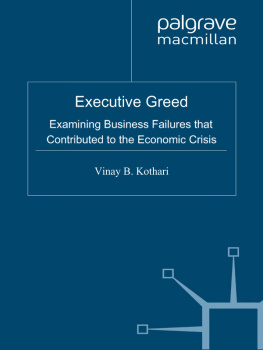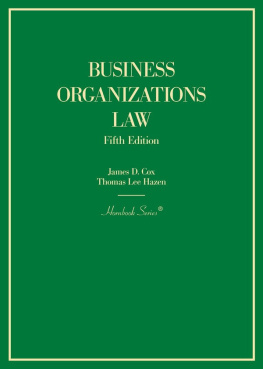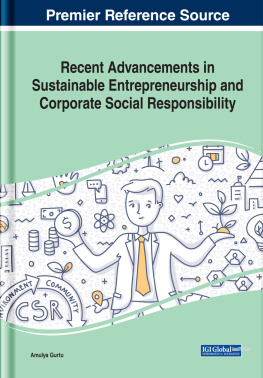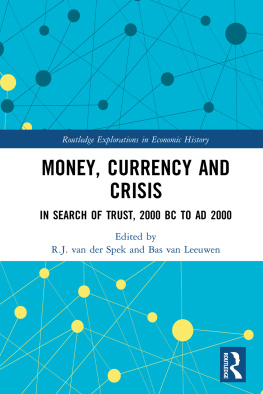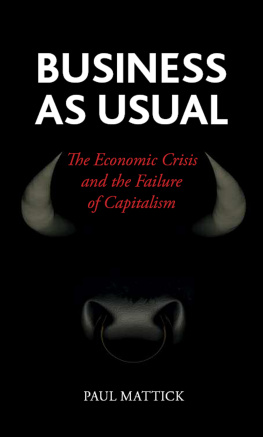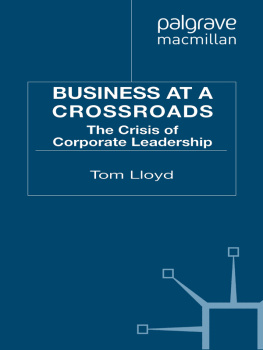Praise for Executive Greed
The author courageously points his finger at one of the worst illnesses of modern capitalism. He builds a bridge between the theoretical models taught in business schools and the daily practices of business life, where top executives seem to have forgotten the basics of good management in favor of their greed for personal financial gain. His considerations help the reader understand where executive greed originates and how it hurts all stakeholders. The book also provides valid suggestions on how to control executive greed and limit its dramatic consequences, with no fear of shaking up the corporate executive establishment. Something which, nowadays, is well worthy of consideration!Riccardo Spinelli, Post-doc Research Fellow, Department of Economics, University of Genoa
Dr. Kothari delineates the cozy incestuous relationship between the boards and senior executives for mutual gain that perverts the interests of individual shareholders. The horrific impact of executive greed on both companies and countries is explicitly explored. Practical solutions for corporate governance reforms are advocated. All board members, executives, and legislators should scrutinize this study to understand and to avoid the dark side of the free enterprise system which triggers cataclysmic economic crises.William Bradley Zehner II, PhD, Fellow at the IC2 Institute, and Associate Professor of Management at St. Edwards University
Executive Greed is a fast paced read on doing the right things in corporate America instead of doing things right...for stockholders, that is. From shortsighted, short-termed strategy to treating humans inhumanely, Executive Greed seeks to explain the causes, effects, and cures for placing stockholders over an organizations stakeholders. A good read for todays business student to grasp the current business and economic situation facing America and the world.Charles Fenner, PhD, SUNY
Executive Greed is an excellent and thought provoking read. It is a reality check, and a must read for CEOs, corporate leaders, managers and business school academics. It analyses the short-termism of todays corporate leaders and delivers numerous strategic business-for-tomorrow success tools for CEOs. The books innovative and competitive customer-focused solutions are highly suitable for corporate long-termism, and for the ongoing growth in shareholder value.John Hamilton, Associate Professor and Director of E-Business, James Cook University
Executive Greed
Executive Greed
Examining Business Failures that
Contributed to the Economic Crisis
Vinay B. Kothari


EXECUTIVE GREED
Copyright Vinay B. Kothari, 2010.
All rights reserved.
First published in 2010 by
PALGRAVE MACMILLAN in the United States a division of St. Martins
Press LLC, 175 Fifth Avenue, New York, NY 10010.
Where this book is distributed in the UK, Europe and the rest of the world, this is by Palgrave Macmillan, a division of Macmillan Publishers Limited, registered in England, company number 785998, of Houndmills, Basingstoke, Hampshire RG21 6XS.
Palgrave Macmillan is the global academic imprint of the above companies and has companies and representatives throughout the world.
Palgrave and Macmillan are registered trademarks in the United States, the United Kingdom, Europe and other countries.
ISBN: 978-0-230-10401-3
Library of Congress Cataloging-in-Publication Data is available from the Library of Congress.
A catalogue record of the book is available from the British Library.
Design by MPS Limited, A Macmillan Company
First edition: July 2010
10 9 8 7 6 5 4 3 2 1
Printed in the United States of America.
This book is dedicated to my wife, Connie, my daughter Madison P. F. Goodwin, and the rest of my family for their love, inspiration, encouragement, and support.
Table
Preface
In 2009, the insurance giant AIG (American International Group), along with Merrill Lynch and a number of other American firms, stood for corporate greed. Their CEOs were handing out huge bonuses for themselves as well as for their cronies, angering the society at large. Americans were enraged by the news of executive bonuses in the firms that were being bailed out by the government. Without the billions in government assistance, most of these businesses would not have survived. Even though many managers of these firms were responsible for their firms financial decline, they were rewarding themselves as if they deserved high compensations for their disastrous business decisions, policies, and actions. The financial excesses brought these executives worldwide notoriety and public ridicule.
The highly publicized cases are only the few drops in the vast pool of executive greed. There are thousands of executives earning high compensations unjustifiably in countless big companies. The reported incidents shed light on how corporate leaders in the United States and elsewhere have been enriching themselves, legally or unlawfully, at the expense of consumers, employees, distributors, suppliers, stockholders, and the society at large.
In most cases, business decision-makers at the top have contributed directly to their firms business problems. However, instead of accepting responsibility for their flawed strategies and practices, these business managers continue to reward one another at the top with high salaries, bonuses, and severance packages. In large firms, many corporate executives act as if they are accountable to no one; they behave as if they are entitled to high compensationseven in times of their firms most serious circumstances.
The corporate leaders have been able to get away with their irresponsible behavior for years without much scrutiny from the government or other responsible parties, such as the public accounting firms, rating agencies, trade associations, and research firms. The business press has been blind, beating frequently the corporate drums. All the watchdogs seem to overlook the corporate misdeeds. Some, in fact, act as collaborators simply to protect their own personal or organizational financial interests. Political contributions and aggressive lobbying by business have strong influence on the regulatory atmosphere.
Even after Barack Obama won the White House and the Democrats enjoyed a clear majority in both houses of Congress in 2009, there was no strong political will to implement the most beneficial health care and financial regulatory reforms for the society at large. As usual, business has been very successful in crushing or watering down any regulatory reforms.
The recent economic crises suggest a troubling situation of moral decline. Over the past few years, too many business and civic leaders have been found guilty or have come under suspicion for immoral or illegal conduct.
It is not difficult to understand what takes place when the business and government leaders behave as collaborates for personal gains and are not held accountable. The self-serving leadership behavior becomes clearly evident when its economic and social consequences are disastrous.
In less than 25 years, there have been three major economic crises, each one much more serious than its predecessor(s) and each a result of personal greed. Each time, the leadership behavior seems to be more self-centered, reckless, and severe. The absence of sound regulations or law enforcement entices greedy business leaders to pursue self-interests more than corporate or public interests.
Next page
